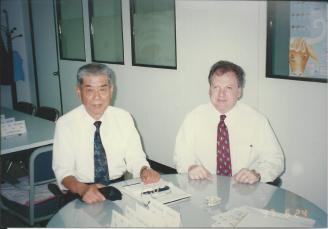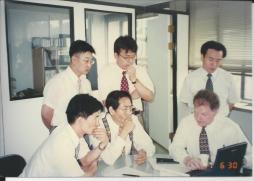Sometimes we let our experience and expertise blind us a bit and forget that other folks may not have the knowledge and understanding of a subject, a process, or a discipline that is vital to success. This thought has been tugging at me over the last few weeks, as I attended several different community meetings. The constants I observed from the back of the room: ethical leadership, active and inclusive dialog, and respect for all and from all, even during difficult discussions.
A New Look and Feel
As newly elected and returning CCSD Directors gather to begin their work, the tone of the board and the community feels somehow different. There’s a sense of new beginnings, and everyone seems to be looking to lighten the tensions that had been ever-present over the past few years.
Continuing changes on the Administrative side has some staff members playing out of position. The acting General Manager, with support from an experienced consultant, has kept the operation moving ahead.
Refining Teamwork
As the new team finds its way towards effective collaboration, members will become more familiar with each other’s style of communication. Experience tells us that the fundamentals of good communication require both speaking and listening. More so, it requires active listening and awareness of how others are hearing what you are saying. Adjustments to cadence, language and most importantly, gaining acknowledgment that things are clearly understood. Question. Summarize. Restate. Read the room, read the dais.
Embedded Practices
As new citizens join the expanded standing committees, thoughtful attention to respectful dialog should be a guiding principle for all members. Real collaboration can yield positive results for our community. We need to be rooting for the people who have stepped into these committee roles.
Paying Attention (poorly)
Many years ago, I had the opportunity to lead an engagement that would put a series of sophisticated, intelligent production mail systems into Korea ePost. My role, as Project Leader, was to work with the US and Korean teams to define technical and business requirements, compile all the appropriate costing and pricing information, and build a Statement of Work that would set the specifics of the project. We initially worked in the U.S., and, when the framework of the project was robust, we moved the activity from the U.S. to Korea.

H.O. Lee and some guy
Our dealer in Seoul, H. O. Lee, had spent years building the relationships that made this project a reality. The Korean-based team consisted of engineers and project support people with backgrounds in Software, Systems, Data Management, and Operations. Most were Korean, some were Chinese, and all spoke some English. I had a high degree of confidence that we would work well together.
White Shirts and Bad Ties
I flew to Seoul for a week of intense review and refinement of the documentation that would guide the project and serve as the governance model for the engagement.
We powered through Day One, reviewing each section of the SOW. Day Two was more of the same. I was feeling great! On Day Three, a slightly apologetic H. O. Lee pulled me aside and said, in his soft sing-song voice: “Mike, we appreciate very much you coming to Seoul to teach us about the software and the inkjet printing and the file-based processing. Mike, we study English for years in school. But Mike, you talk so fast!!!! Please, SLOW DOWN!!!”
OK then… back to Page One…
Missed The Mark

I didn’t read the room very well.
I didn’t do a good job of recognizing a significant problem with my style. My fellow team members hesitated to make me aware of the problem, which added to the stress they were feeling. H.O. Lee recognized the issues and, as a good leader should, brought it to my attention in a way that helped me to correct my approach.
We recovered from my failure to execute a basic responsibility, and, after several months of hard work, we completed our installation.
Use What We Learn
I carry this, and other hard lessons forward and try to not repeat past communication mistakes. I try to listen more closely. I ask more questions and then play the answers back to make sure that what I heard is what was said. Most importantly, I watch others closely to ensure that they are absorbing and understanding what is being discussed. These actions help everyone contribute to the discussion and make useful, informed decisions and take the steps that will deliver successful outcomes.
Then I go ahead and make all new mistakes!
You know, that sweatshirt isn’t going to keep you dry.
Words of wisdom from a local beer slinger.
I admire your perseverance in moving forward to make new mistakes! 🙂 Learning from the old ones is the key as you have pointed out.
LikeLike
“I remind myself every morning: Nothing I say this day will teach me anything. So if I’m going to learn, I must do it by listening.” Larry King
LikeLike